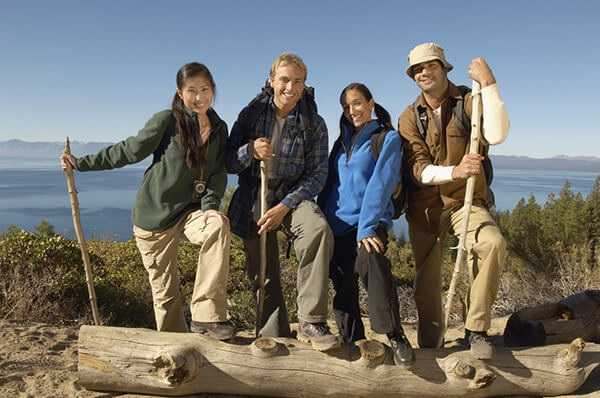Wilderness therapy is beneficial to adolescents and young adults that are dealing with behavioral issues and addiction. Most people taking advantage of these programs are adolescents between the ages of 12 and 17. Therapeutic wilderness programs were originally created to help adolescents with behavioral management and improving life at home.
How Does Wilderness Therapy Work?
Wilderness therapy temporarily removes kids from their current environment and places them in outdoor settings. The main purpose of the environmental change is to teach therapeutic lessons in acceptable social behaviors, life skills, responsibilities, and self-reliance. Families that have an out of control adolescent in the home contact therapeutic wilderness programs as a therapeutic option. Their loved ones experience an intense experience away from the atmosphere they are currently living in. The youth spend time in wilderness settings, camping, and hiking. During their time in the wilderness, their main purpose will be to recognize problem areas in their actions. They will learn how to correct and respond to them. Behavioral management is the key therapy used.
Tough Love in a Tough Setting
Before the kids are set out into the wild, they receive some training on skills they will need out in the wilderness. They’ll be taught the basics and have some exercise programs before setting out. They’re also taught healthy eating and what to eat out in the wild. When the kids attend the therapeutic wilderness program, they don’t have the same luxuries they may have at home. They’ll need to learn self-reliance and responsibility. They will be responsible for bringing the proper gear to survive in the wild. If it’s raining and they didn’t bring a tarp or rain jacket, they can expect to get wet. If they haven’t mastered the skill of starting a fire to cook their meals, they’ll be eating a cold dinner.
Interpersonal Relationship Skills
Although dealing with the outdoor ruggedness and being self-reliant will be difficult at first, the main purpose of the therapeutic wilderness programs is to help the adolescents learn or improve interpersonal relationships. Some of them may not have the correct skills needed for a loving, productive home life. By working closely with their peers and counselors in the program, these vital skills can be learned. The final goal of these programs is to have these newly-learned skills carry over into their regular environments.
Family Follow-Up
One way to ensure that the adolescents continue using their newly learned skills is to offer aftercare for the entire family. Therapies are encouraged. Other programs such as drug or alcohol rehab might be necessary. All in all, therapeutic wilderness programs offer a unique yet successful opportunity in helping adolescents learn positive behavior modifications and life skills.


